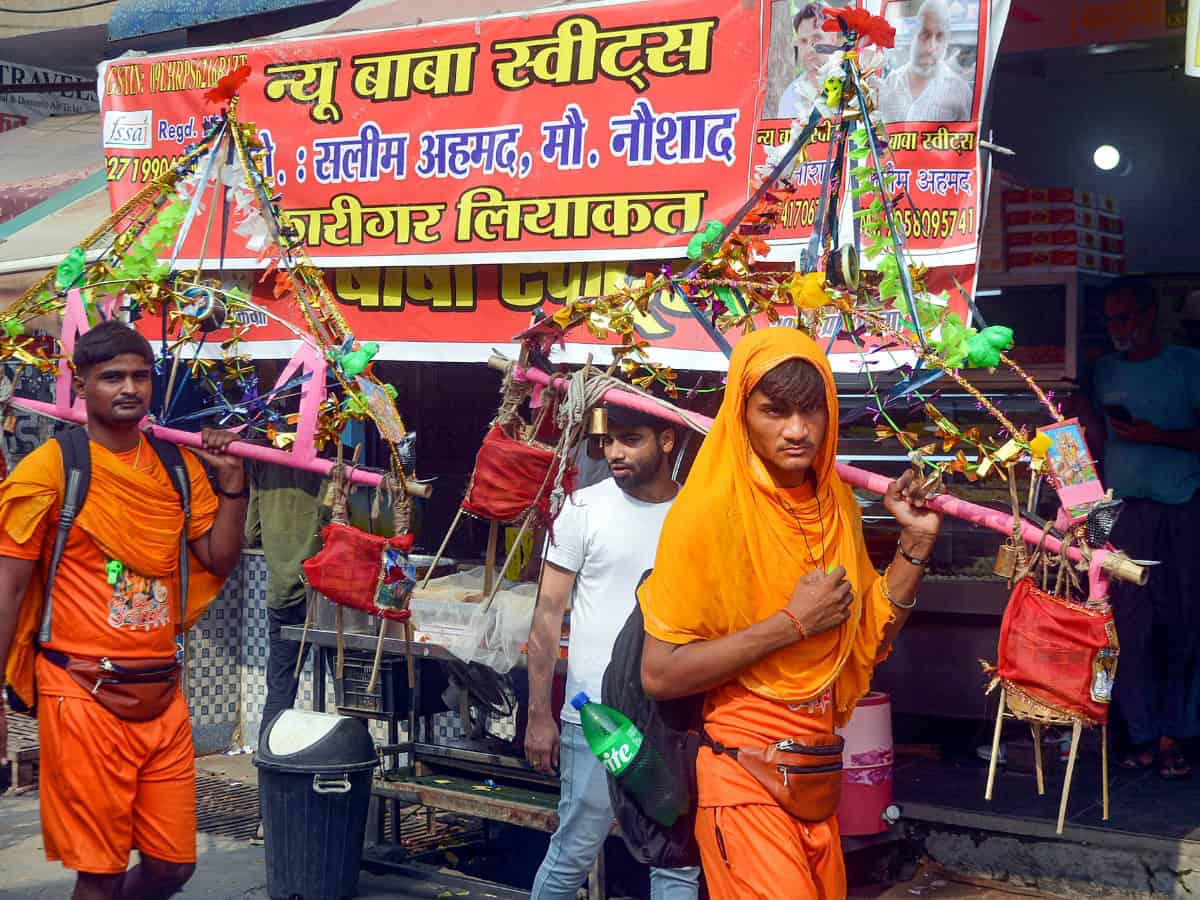
The Uttar Pradesh government has strongly opposed legal challenges in the Supreme Court to its directive mandating that shop owners along the Kanwar Yatra route display their names prominently.
The state asserted that this directive was implemented to maintain a peaceful and orderly environment during the pilgrimage.
“The yatra is an arduous journey, where some Kanwariyas , i.e. the Dak Kanwariyas, do not even stop to rest once the Kanwar is on their shoulders. There are sacred features of the pilgrimage, such as the fact that the Kanwar, once filled with holy Gangajal, is not to be kept on the ground; nor under the shadow of the gular tree. It may also be noted that a Kanwaria embarks on the Yatra after years of preparation,” the government said in its statement.
The Kanwar Yatra is an annual event where devotees of Lord Shiva, known as Kanwariyas, travel to collect holy water from the Ganges River, attracting millions of participants each year.
Oppn calls move anti-Muslim, discriminatory
The Uttar Pradesh government’s directive requiring eateries along the Kanwar Yatra route to display the names of their owners and employees has sparked controversy with the opposition and the critics terming it as religious discrimination.
The government claimed the directive was issued in response to complaints from Kanwariyas about confusion caused by the names of shops and eateries, and to maintain law and order during the pilgrimage.
However, the opposition has criticized the move as being aimed at creating divisions within society and targeting the Muslim community.
The Supreme Court has stayed the enforcement of the directive in Uttar Pradesh and Uttarakhand, stating that while food sellers may display the types of food they serve, they cannot be compelled to display their names.
The court has also issued notices to all states where the Kanwar Yatra takes place.
Priyanka Gandhi calls move ‘assault on Constitution’
Congress general secretary Priyanka Gandhi Vadra described the directive as an assault on the Constitution and a violation of anti-discrimination principles.
Gandhi argued that the order undermines the constitutional guarantee of non-discrimination based on caste, religion, or language, labelling it an attack on democracy and shared heritage.
Manifestation of anti Muslim sentiment: Owaisi
AIMIM chief and Hyderabad MP Asaduddin Owaisi remarked on the directive as a manifestation of anti-Muslim sentiment, attributing it to political parties and leaders associated with Hindutva ideologies.
He expressed concern over the atmosphere of fear created for Muslims along the Kanwar routes.



